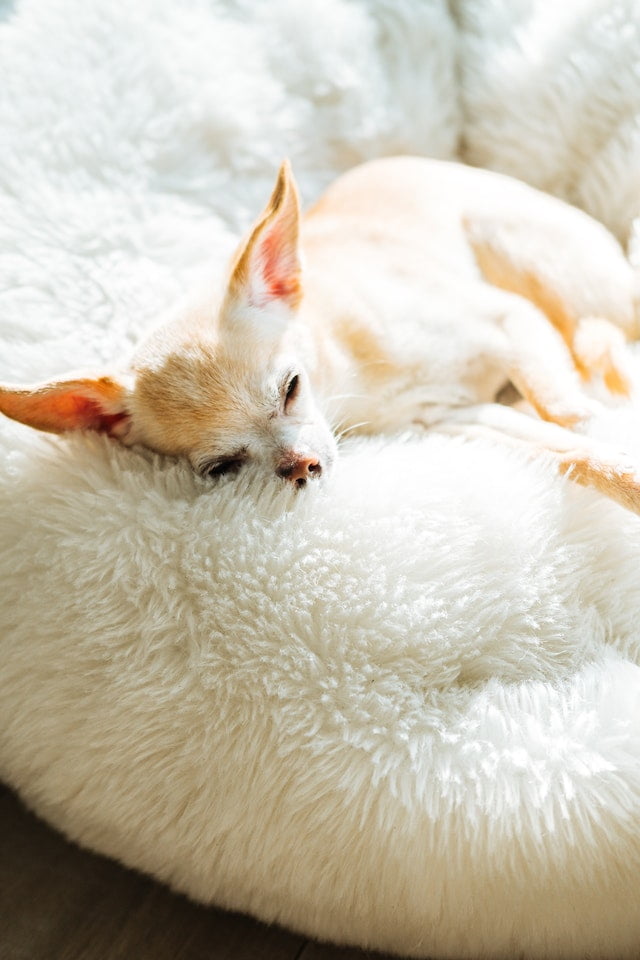Why do dogs nibble on blankets?
Dogs are lovable and adorable creatures, and they bring immense joy to our lives. However, there are certain behaviors that can leave us puzzled and concerned, such as nibbling on blankets. If you’ve ever caught your furry friend nibbling on your favorite blanket, you may wonder, “Why do dogs nibble on blankets?” Believe me, the question is very much on point, and understanding the reasons behind this behavior is very important to addressing it effectively. In this article, we will delve into the possible reasons why dogs nibble on blankets and what you can do to help your furry friend overcome this habit.
Why do dogs nibble on blankets?
Just like I mentioned earlier, understanding why dogs nibble on blankets will provide a clear path in addressing the behavior. This behavior from your dog might seem frustrating and throw you into confusion, but I urge you to take your time and read through the whole article to better understand the behavior. So, why do dogs nibble on blankets?
#1: Your dog is seeking attention
One reason dogs nibble on blankets is to seek attention. Dogs are social animals, and they thrive on the attention of their owners. If they feel neglected or ignored, they may nibble on blankets as a way of seeking your attention. This behavior is especially common in puppies, who are still adapting to their new environment and need reassurance.
#2: Your dog is bored and needs to play
Another reason why dogs nibble on blankets is because they are bored and need to play. Dogs are energetic and require physical and mental stimulation to remain healthy and happy. If your dog is not getting enough exercise or playtime, they may nibble on blankets as a way of relieving their boredom.
#3: Your dog is in pain
Sometimes, dogs nibble on blankets to alleviate pain or discomfort. If your dog is experiencing dental issues or other types of discomfort, they may nibble on blankets as a way of relieving the pain. If you notice this behavior along with other signs of pain or discomfort, such as limping or whimpering, it is essential to take them to the vet for a checkup.
#4: The blanket smells just like you
Dogs have a keen sense of smell, and they often rely on scent to feel comfortable and secure. If your dog nibbles on blankets, it may be because they are drawn to your scent. The blanket may have your scent on it, and your dog may use it as a way of feeling close to you.
#5: Your dog is trying to relieve stress and anxiety
Just like humans, dogs can experience stress and anxiety. Nibbling on blankets can be a way for your dog to relieve their anxiety and feel calmer. This behavior can be especially common in dogs who suffer from separation anxiety or are afraid of loud noises.
Your dog may be hungry
Finally, dogs may nibble on blankets if they are hungry or have a nutritional deficiency. If your dog is not getting enough food or nutrients, they may nibble on blankets as a way of satisfying their hunger.
How to stop your dog from nibbling on blankets
While it’s essential to understand why dogs nibble on blankets, it’s equally important to know how to stop this behavior. Here are some tips that can help you prevent your dog from nibbling on blankets:
#1: Provide your dog with chew toys
If your dogs nibble on blankets because they are teething or bored, providing them with chew toys can help redirect their attention. Make sure to choose toys that are safe and durable, and supervise your dog while they play with them.
#2: Increase exercise and playtime
If your dogs nibble on blankets because they are bored, providing them with more exercise and playtime can help alleviate their boredom. Take your dog on long walks, play fetch, or engage in other fun activities to help your dog release their pent-up energy.
#3: Use positive reinforcement
Dogs respond well to positive reinforcement, and it can be an effective way of encouraging desirable behaviors. When you notice your dog not nibbling on blankets, reward them with praise, treats, or toys. This will help reinforce good behavior and encourage them to continue it.
#4: Provide appropriate chew treats
Chew treats can also be a useful tool in preventing your dog from nibbling on blankets. Providing your dog with appropriate chew treats, such as bully sticks or rawhide bones, can redirect their attention and satisfy their chewing needs.
#5: Keep blankets out of reach
If your dog is nibbling on blankets because it is seeking attention, keeping the blankets out of reach can help discourage the behavior. Store your blankets in a closet or drawer where your dog cannot access them.
#6: Consult with a professional
If your dog’s nibbling behavior is severe or has a medical cause, consulting with a professional, such as a veterinarian or a dog trainer, can help you address the issue effectively.
Is blanket nibbling harmful to your dog?
Dogs Nibbling on blankets itself is not necessarily harmful to dogs, but it can lead to some problems if left unchecked. Here are some potential issues that can arise from blanket nibbling:
- Ingesting foreign objects: If your dog tears apart the blanket and ingests the fabric, stuffing, or any other foreign object, it can lead to blockages in the digestive system. This can cause serious health problems and even require surgery in severe cases.
- Dental problems: Excessive chewing on blankets can cause dental issues such as broken or cracked teeth, which can be painful and require dental procedures.
- Obsessive-compulsive disorder (OCD): In some cases, blanket nibbling can become an obsessive-compulsive behavior, which can be detrimental to a dog’s mental health and well-being.
- Destruction of property: If your dog’s nibbling behavior goes unchecked, it can lead to the destruction of your blankets or other household items, which can be frustrating and expensive to replace.
Frequently Asked Questions
Is it harmful for my dog to nibble on blankets?
While nibbling on blankets is generally harmless, excessive nibbling can lead to digestive problems or damage to the blanket.
How can I prevent my dog from nibbling on blankets?
Identify the underlying cause of the behavior and address it appropriately. Provide plenty of exercise, socialization, and mental stimulation to keep your furry friend happy and healthy.
Is blanket nibbling behavior common among dogs?
Yes, blanket nibbling behavior is relatively common among dogs, and it can be traced back to their wolf ancestors’ instincts.
How can I discourage my dog from nibbling on blankets?
If you want to discourage your dog from nibbling on blankets, there are a few things you can try. First, offer your dog some toys or chews that are safe for them to chew on instead of the blanket. You can also try redirecting your dog’s attention to other activities, like playing fetch or going for a walk. Finally, make sure your dog has plenty of exercise, socialization, and mental stimulation, as boredom can often be a cause of blanket nibbling.
Is blanket-nibbling behavior more common in certain breeds?
While blanket nibbling behavior can be seen in all breeds of dogs, it may be more common in certain breeds that have a tendency to chew or have high energy levels. For example, breeds like Labrador Retrievers, Golden Retrievers, and Beagles are known for their love of chewing and may be more likely to nibble on blankets.
What should I do if my dog swallows a piece of the blanket?
If your dog swallows a piece of the blanket, it’s important to monitor them closely for any signs of digestive problems, such as vomiting, diarrhea, or a loss of appetite. If you notice any of these symptoms or if your dog seems to be in distress, contact your veterinarian right away. In some cases, your veterinarian may recommend an x-ray or other tests to check for blockages or other issues.
Final thoughts
In conclusion, dogs nibble on blankets for various reasons, and it is important to identify the underlying cause to address the behavior effectively. Understanding your dog’s behavior and providing appropriate solutions can prevent the behavior from escalating into a more serious issue.
You may also be interested in:


